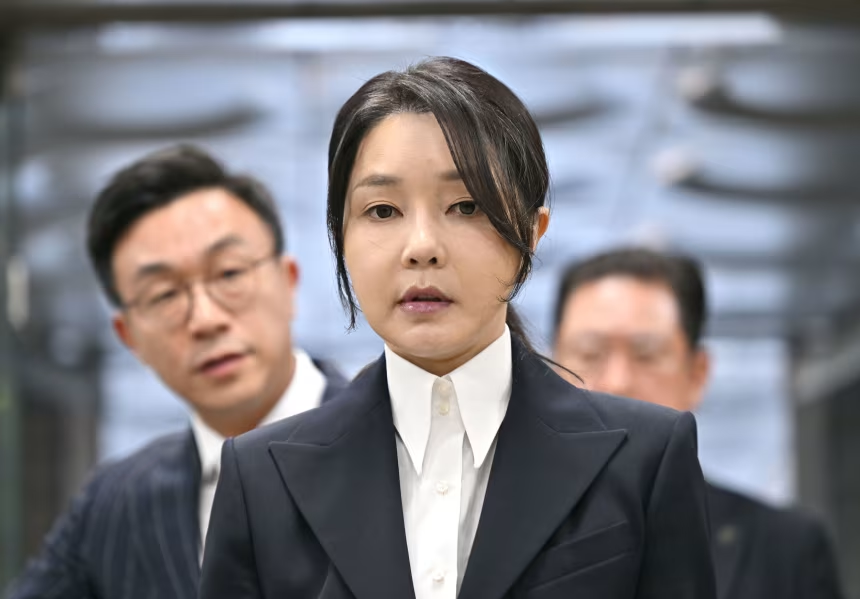South Korea’s political landscape was shaken on August 29, 2025, as prosecutors formally indicted Kim Keon-hee, the country’s former First Lady, on charges of bribery and stock manipulation. The move marks the first time in the nation’s history that a former First Lady has faced criminal trial, underscoring the scale of the widening corruption scandal linked to her husband, ex-President Yoon Suk-yeol.
Prosecutors allege that Kim manipulated stock prices between 2010 and 2012, reaping illicit profits of around ₩810 million (approximately $583,000). She is also accused of accepting ₩80 million worth of luxury bribes, including Chanel handbags and a diamond necklace, from a Unification Church official in exchange for political favors.
Kim has denied all wrongdoing, but vowed through her legal team to stand trial “without excuses.” Her indictment comes alongside ongoing proceedings against her husband, former President Yoon, who is facing charges of insurrection over a failed martial law attempt earlier this year. Former Prime Minister Han Duck-soo has also been charged with abetting insurrection and perjury, widening the net of political accountability.
The case carries historic weight. South Korea has long struggled with corruption scandals among its political elite, but Kim’s arrest marks the first time a former First Lady has been indicted. For many citizens, it reinforces a troubling pattern of presidential families entangled in graft and misuse of power.
Special prosecutors, appointed under the current administration of President Lee Jae-myung, have framed the case as part of a broader push for transparency and justice. Yet the scandal also deepens divisions in South Korea’s already polarized political environment, with critics warning that the trials could drag the country into months of instability.
As Kim Keon-hee prepares for court, the spotlight remains firmly on whether South Korea’s justice system can hold its most powerful figures accountable—and what this means for the credibility of its democracy.v


